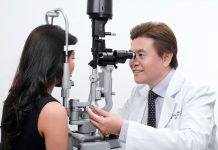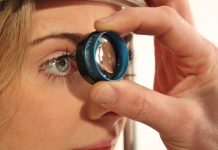Uveitis mainly involves the inflammatory process of the middle layers of the eye, called the uvea.
The uvea, which includes the iris, choroid, ciliary part of your eye, is very important because many of its veins and arteries transport blood to other parts of your eyes.
Depending on the area of inflammation in your eye, Uveitis is classified into four different types: anterior, intermediate, posterior and panuveitis Uveitis.
It can be acute and short-lived or it can be chronic and recurrent. One thing is certain; however, if left untreated, it will seriously damage your eyes [Eye Problems] and even cause loss of eyesight.
Are you at increased risk?
Women are at greater risk of developing uveitis. People aged between 20 to 50 years are mostly at risk of developing uveitis. It is estimated that almost 280,000 people in USA are affected with uveitis every year. It is also estimated that it is the main reason for 30,000 new cases of blindness each year.
Many cases of uveitis are chronic and can cause many complications for the affected person like cataract, glaucoma, and elevated intraocular pressure and retina problems. If you suffer from these complications, you are at risk of losing your normal vision.
Is uveitis curable?
Though it is considered an incurable disease, uveitis can be controlled, depending on the infection and treatment process. New drug treatments are available to enable you to stabilize your eye sight over the long term.
Does it need treatment right away?
As uveitis is serious, treatment should begin as soon as you notice the symptoms of inflammation. As it is not caused by any eye infection, your ophthalmologist will prescribe eye drops containing steroids to reduce the swelling. Drugs will be given to relieve pain and if you are suffering with infectious uveitis, antibiotics will be recommended.
If your doctor suspects that your uvea is infected, a complete eye examination with special equipment will be conducted. Dark glasses should be worn, if your eyes are sensitive to light. If the inflammation is not caused by any injury to your eye, X-rays and blood tests may be done to detect the underlying infection.
Uveitis often recurs, especially if it is caused by an underlying disease. In such a case, it is very important to get early treatment. You will be advised to keep steroid drops on hand at all times, to help you to reduce the inflammation as quickly as possible.













